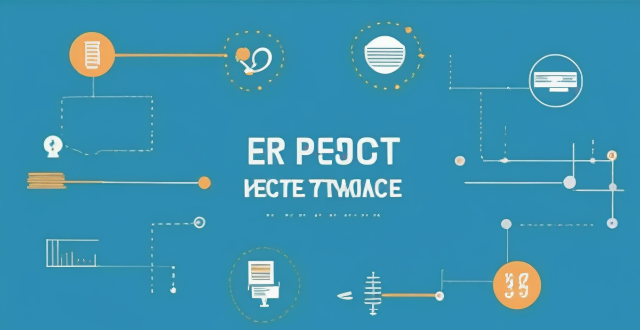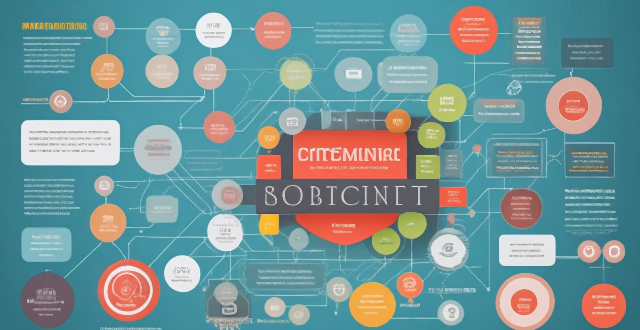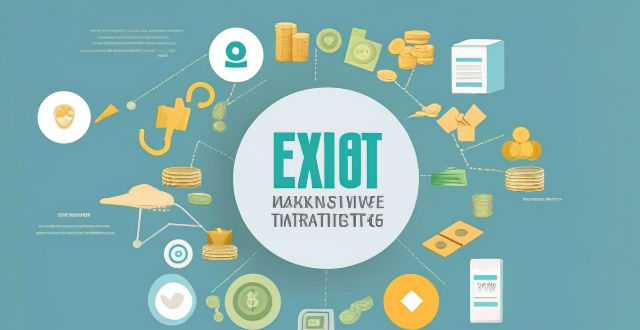Contract Ledger

What is the difference between a regular contract and a smart contract ?
A regular contract and a smart contract differ in terms of their **nature**, **enforceability**, **cost**, **speed**, and **transparency**. Below are the key differences between these two types of contracts: ## Nature ### Regular Contract - Legal agreement between two or more parties. - Typically written in natural language (e.g., English). - Governed by local laws and regulations. ### Smart Contract - Self-executing contract with the terms directly written into code. - Deployed on a blockchain network. - Enforced by the underlying code and cryptographic protocols. ## Enforceability ### Regular Contract - Relies on legal institutions for enforcement (e.g., courts). - May involve mediation or arbitration processes. - Penalties for breach can be monetary or involve other forms of relief. ### Smart Contract - Autonomously executes when predetermined conditions are met. - Enforcement is decentralized and automated. - Penalties for breach are typically programmed into the contract logic. ## Cost ### Regular Contract - Can be costly due to legal fees, notary services, and potential litigation expenses. - Involves overhead of paper-based record keeping and manual processing. ### Smart Contract - Generally less expensive because it eliminates intermediaries. - Costs associated with blockchain transaction fees and contract deployment. ## Speed ### Regular Contract - Time-consuming process from negotiation to signing and execution. - Settlement times can vary widely depending on the complexity of the agreement. ### Smart Contract - Faster execution once the conditions are met. - Real-time settlements possible due to automation. ## Transparency ### Regular Contract - Limited transparency; only involved parties have access to the contract details. - Requires trust in the counterparty to disclose all relevant information. ### Smart Contract - High transparency; contract code and transactions are visible on the blockchain. - Trust is placed in the immutable and verifiable nature of the blockchain.

What is the role of blockchain in the financial industry ?
Blockchain technology has emerged as a game-changer in the financial industry, offering unprecedented levels of security, transparency, and efficiency. Its decentralized nature and immutable ledger system have paved the way for innovative applications that are reshaping the financial landscape. In this article, we will explore the various roles of blockchain in the financial industry. One of the key advantages of blockchain is its ability to create trust without the need for intermediaries. Traditional financial systems rely on central authorities, such as banks or clearinghouses, to verify and record transactions. With blockchain, transactions are verified by a network of nodes, each of which maintains a copy of the ledger. This decentralized approach eliminates the need for intermediaries, reducing costs and increasing efficiency. Blockchain provides a transparent and auditable ledger of all transactions. Each transaction is recorded on the blockchain in a tamper-resistant manner, ensuring that any attempt to alter the ledger will be immediately apparent. This level of transparency enhances accountability and reduces the risk of fraud or errors. Smart contracts are self-executing contracts with the terms of the agreement between buyer and seller being directly written into lines of code. These contracts can automatically execute transactions when certain conditions are met, eliminating the need for intermediaries and reducing the risk of non-performance or disputes. Smart contracts have the potential to revolutionize many areas of finance, including insurance, real estate, and supply chain management. Distributed ledger technology (DLT) is at the heart of blockchain's capabilities. It allows multiple parties to have access to a shared database that is secure, transparent, and tamper-proof. DLT enables faster settlement times, improved cash management, and reduced operational risks. It also facilitates cross-border payments and remittances, making them more efficient and cost-effective. Tokenization involves representing physical assets, such as stocks, bonds, or real estate, as digital tokens on a blockchain. This process enables fractional ownership, easier transferability, and increased liquidity. Tokenization also allows for programmable assets, where rules can be embedded into the tokens themselves, enabling automated compliance with regulations and contractual obligations. Blockchain can be used to create a secure and decentralized identity verification system. This system would allow individuals to control their own identity information and share it selectively with third parties while maintaining privacy. Such a system could significantly reduce identity fraud and streamline processes that require identity verification, such as opening bank accounts or applying for loans. Blockchain's transparency and immutability make it an ideal tool for regulatory compliance. By using blockchain to record all financial activities, regulators can easily monitor and analyze transactions in real-time, identifying potential violations and enforcing compliance more effectively. This could lead to more efficient regulation and better protection for consumers and investors. In conclusion, blockchain technology has the potential to transform the financial industry by improving efficiency, reducing costs, enhancing security, and promoting transparency. From decentralization and trust to smart contracts and tokenization, blockchain is poised to disrupt traditional financial models and create new opportunities for innovation and growth. As adoption continues to accelerate, we can expect to see even more exciting developments in the years ahead.

What is a smart contract ?
Smart contracts are self-executing contracts with the terms of the agreement between buyer and seller being directly written into lines of code, which exist across a distributed, decentralized blockchain network. They allow for transactions and the transfer or distribution of cryptocurrencies to be executed automatically without the need for a central authority, legal system, or external enforcement mechanism. Smart contracts are autonomous, immutable, traceable, and decentralized. They have various use cases such as cryptocurrency transactions, insurance claims, supply chain management, real estate transactions, gambling and betting, and legal documents. The benefits of smart contracts include efficiency, transparency, security, speed, and accuracy. However, there are challenges and considerations such as code quality, lack of legal recognition, interoperability issues, and privacy concerns.

How can schools address the issue of contract cheating, where students pay others to complete their assignments or exams ?
Addressing contract cheating in schools is crucial for maintaining academic integrity. Effective measures include using advanced plagiarism detection tools, educating students on academic integrity, encouraging open discussions, providing support services, and collaborating with parents and guardians. These strategies can deter students from engaging in contract cheating and promote a culture of original work.

What are smart contracts in the context of blockchain ?
Smart contracts are self-executing digital agreements that operate within the blockchain, providing a decentralized and trustless system for transactions. They are created using specific programming languages and deployed onto a blockchain platform. Once conditions are met, smart contracts execute automatically, with each node verifying the process to ensure accuracy. Applications include cryptocurrencies, supply chain management, real estate, insurance, and legal agreements. However, challenges like immutability, complexity, legal standing, and privacy concerns must be addressed.

How does blockchain ensure decentralization and transparency ?
Blockchain technology ensures decentralization and transparency through a distributed ledger, consensus mechanisms like Proof of Work (PoW), Proof of Stake (PoS), and Delegated Proof of Stake (DPoS), node autonomy, immutable records via cryptographic hashing, public accessibility of the ledger, verifiable transactions using digital signatures, and smart contracts. These features create an environment resistant to manipulation and corruption, offering a paradigm shift in secure and accountable digital interactions.

Are there any hidden fees or contracts associated with upgrading my broadband ?
When upgrading broadband, beware of early termination fees, equipment rental costs, and installation charges. Also, understand contract minimums and auto-renewal clauses before committing.

How do smart contracts work ?
Smart contracts are self-executing contracts with the terms directly written into code, operating on a decentralized blockchain network. Key features include autonomy, trustless transactions, immutability, and traceability. The working mechanism involves deployment, execution based on predefined conditions, verification through consensus algorithms, and settlement updating contract states. Benefits encompass efficiency, transparency, security, and the removal of intermediaries. Challenges include legal recognition, coding errors, and handling complex logic. Smart contracts revolutionize traditional contract law by enabling secure, automated, and transparent transactions on blockchain networks.

What are the benefits of using smart contracts ?
Benefits of Using Smart Contracts Smart contracts are self-executing contracts with the terms of the agreement between buyer and seller being directly written into lines of code. They offer a range of benefits including automation, transparency, security, efficiency, and cost savings. By automating processes and reducing the need for intermediaries, smart contracts can save time and money, as well as reduce the risk of errors or fraud. They are secured by cryptography, which makes them extremely difficult to hack or manipulate. This security feature can be particularly useful in situations where sensitive information needs to be shared between parties. Smart contracts can also lead to cost savings by reducing the need for intermediaries or third parties. As blockchain technology continues to evolve, it is likely that we will see even more innovative uses for smart contracts in the future.

What are the potential risks associated with smart contracts ?
Smart contracts revolutionize digital transactions but pose risks like code vulnerabilities, legal uncertainties, lack of human oversight, interoperability issues, and privacy concerns. Users must understand these potential pitfalls before engaging in smart contract agreements to mitigate adverse outcomes.

What are the legal implications of using smart contracts ?
Smart contracts, self-executing contracts with terms written in code on a blockchain, raise legal questions about enforceability, jurisdiction, privacy, security, and regulatory compliance. Best practices include consulting a legal expert, clearly defining terms, considering jurisdiction, and prioritizing privacy and security.

How can smart contracts be used to streamline financial transactions ?
Smart contracts can streamline financial transactions by automating processes, reducing costs, and increasing efficiency. They can automate payments and transfers, act as escrow services, create loan agreements, streamline insurance claims, and facilitate trading and exchanges of financial assets. As blockchain technology evolves, we can expect more innovative uses for smart contracts in the financial industry.

Can you explain how blockchain technology works and its potential applications ?
Blockchain technology is a decentralized, digital ledger that records transactions in a secure and transparent manner. It works through a peer-to-peer network of computers (nodes) without a central authority, using cryptography to secure data and verify participants' identities. A consensus mechanism ensures all nodes agree on the state of the ledger, making it immutable and transparent. Transactions are validated, grouped into blocks, added to the chain, and distributed to all nodes. Potential applications include finance (cryptocurrencies, smart contracts, remittances), non-financial areas (supply chain management, health records, voting systems, identity verification), and other sectors like real estate and intellectual property rights. Blockchain promises increased efficiency, security, and transparency across various industries.

What are the benefits of hiring a sports agent for career management ?
Hiring a sports agent can bring numerous benefits to an athlete's career management, including negotiating contracts and deals, marketing and branding assistance, legal representation, and career planning and development. By working with an experienced sports agent, athletes can focus on their performance while leaving the business side of their careers in capable hands.

How secure is decentralized finance compared to traditional finance ?
The text provides a comparative analysis of the security aspects of decentralized finance (DeFi) and traditional finance (TradFi). DeFi relies on blockchain technology for peer-to-peer transactions, while TradFi operates through centralized institutions. Both systems have unique security features and risks, with DeFi offering transparency and automated contract execution but facing smart contract vulnerabilities and lack of regulatory clarity. TradFi benefits from regulatory oversight and physical security measures but is susceptible to systemic risks and cybersecurity threats. The choice between DeFi and TradFi depends on individual preferences and risk tolerance, and it's crucial to stay informed about new developments in the evolving financial landscape.

Can smart contracts be used in traditional businesses ?
Smart contracts, self-executing contracts with terms written into code, can be used in traditional businesses but have limitations such as legal issues and complexity. They offer advantages like transparency, efficiency, and security but also present challenges like lack of human touch and privacy concerns. Businesses should carefully consider their specific needs before adopting this technology.

What is the difference between Bitcoin and other cryptocurrencies ?
Bitcoin is the first cryptocurrency and has a decentralized structure, highest market capitalization, slower transaction speeds, high energy consumption, and does not support smart contracts. Other cryptocurrencies may have faster transactions, be more energy-efficient, and support smart contracts, but they may not be as decentralized or have as high a market cap as Bitcoin.

What are the potential drawbacks or challenges of implementing blockchain ?
The article discusses several potential issues with blockchain technology, including lack of regulation, scalability concerns, security vulnerabilities, and interoperability challenges. It highlights the need for clear legal and compliance guidelines, tax treatment standards, improved transaction speeds, reduced energy consumption, ongoing security measures, thorough smart contract testing, and increased standardization across different blockchains. Overall, while blockchain offers many potential benefits, these challenges must be addressed in order for the technology to reach its full potential.

How can I get started with decentralized finance ?
Topic Summary: The text provides an overview of Decentralized Finance (DeFi) and its benefits, such as transparency, accessibility, efficiency, and innovation. It outlines steps for getting started with DeFi, including self-education on cryptocurrencies and blockchain, setting up a crypto wallet, acquiring cryptocurrency, connecting to a DeFi platform, exploring DeFi services like lending, borrowing, liquidity providing, yield farming, and tokenization, and practicing safe DeFi habits. The text emphasizes the importance of risk management, security, and continuous learning in navigating the evolving world of DeFi.

What are the most popular types of cryptocurrency ?
This text provides an overview of five popular types of cryptocurrency: Bitcoin, Ethereum, Ripple, Litecoin, and Cardano. Each type is briefly described, highlighting its key features and unique characteristics.

What role does sports economics play in determining player salaries and contracts ?
Sports economics plays a crucial role in determining player salaries and contracts by considering various factors such as market demand and supply, revenue generation, cost of production, risk management, competitive balance, and free agency. Teams must make informed decisions about player compensation while balancing financial considerations with the goal of achieving success both on and off the field.

How does cryptocurrency work ?
Cryptocurrency is a digital or virtual currency that uses cryptography for security, operating independently of a central bank. It allows direct transfers between individuals without intermediaries like banks. Key components include cryptography (public and private keys, encryption, decryption), blockchain technology (decentralization, transparency, immutability, consensus mechanism), mining (Proof of Work, Proof of Stake, mining rewards, network security), and smart contracts (automation, efficiency, security, transparency). These technologies work together to create a secure, decentralized, and transparent digital payment system with fast, low-cost, and borderless transactions while maintaining user privacy and security.

What is decentralized finance (DeFi) and how does it work ?
Decentralized finance (DeFi) is a financial system based on blockchain technology that operates without intermediaries like banks. It is transparent, borderless, permissionless, and interoperable. The core components of DeFi are smart contracts, cryptocurrencies, decentralized applications, and blockchain infrastructure. Users can access DeFi platforms through wallets, provide collateral for loans, earn interest by depositing their cryptocurrencies into lending platforms, trade assets peer-to-peer, get insurance against risks associated with smart contracts and cryptocurrency holdings, and have voting rights within the ecosystem. However, DeFi faces challenges such as scalability issues, regulatory uncertainty, security risks, and user experience complexity. Despite these challenges, DeFi has immense potential to democratize finance and provide inclusive solutions.

How could blockchain impact the voting system and democracy ?
Blockchain technology has the potential to revolutionize voting systems and democracy by enhancing security, transparency, accessibility, and efficiency. Secure and immutable records ensure that votes cannot be altered or deleted, while transparent and auditable processes reduce the risk of electoral fraud. Decentralized voting increases accessibility for people with disabilities or living in remote areas, and reduces costs associated with traditional voting methods. Faster results and real-time tracking further streamline the process. However, challenges such as technical complexity and privacy concerns must be addressed. Ongoing research and development in blockchain technology will play a crucial role in shaping its future impact on democracy, potentially leading to more inclusive and trustworthy democracies worldwide.

Are there any risks associated with investing in DeFi ?
Investing in DeFi comes with risks such as smart contract vulnerabilities, impermanent loss, regulatory uncertainty, and lack of transparency. It is important for investors to carefully evaluate these risks before investing in any DeFi project.

Are there any discounts or promotions available for switching to a new mobile operator ?
When considering switching to a new mobile operator, itWhen considering switching to a new mobile operator, it if there are any discounts or we will explore the various incentives that mobile operators may offer to attract new customers and retain existing ones. These incentives can include sign-up bonuses, referral programs, trade-in deals, and loyalty rewards. However, it's essential to consider factors such as contract terms, coverage, hidden fees, and compatibility before making the switch. By weighing these factors carefully, you can make an informed decision about whether switching to a new mobile operator is right for you.

What are the potential risks associated with sports sponsorship and how can they be mitigated ?
Sports sponsorship is a popular marketing strategy used by companies to promote their brand, products, or services. However, there are potential risks associated with sports sponsorship that need to be considered and mitigated. These risks include reputational risk, financial risk, and legal risk. To mitigate these risks, companies should conduct thorough research on the athlete/team before signing a sponsorship deal, ensure alignment between the sponsor's values and those of the sponsored entity, set clear budgets for sponsorship activities, monitor the performance of the sponsored entity, negotiate flexible contract terms, and work with legal experts to ensure compliance with all relevant laws and regulations. By managing these risks, companies can maximize the benefits of their sports sponsorship investments.

How much do celebrities typically get paid for endorsing a product ?
Celebrity endorsements are a common marketing strategy used by brands to promote their products or services. The amount of money that celebrities earn from endorsements can vary widely depending on several factors, including the celebrity's popularity, the type of product being endorsed, and the length of the contract. In this article, we will explore some of the key factors that determine how much celebrities typically get paid for endorsing a product.